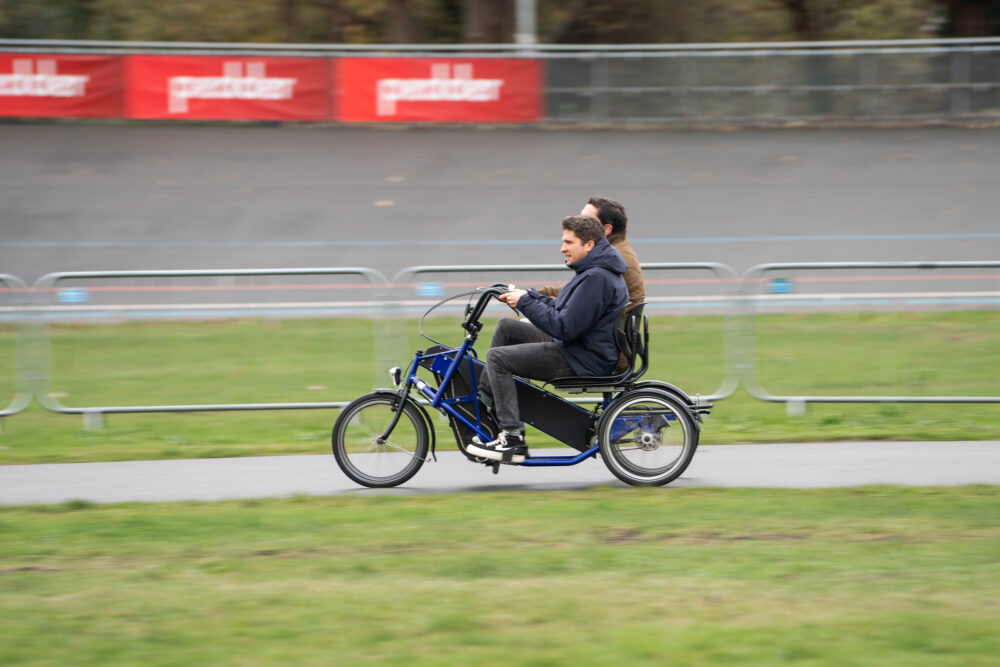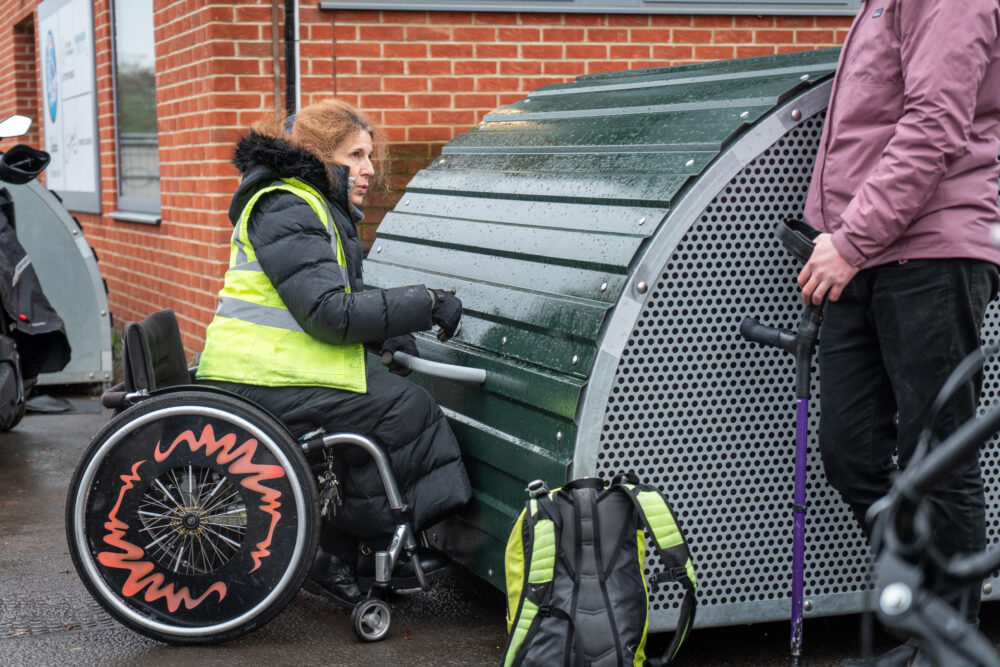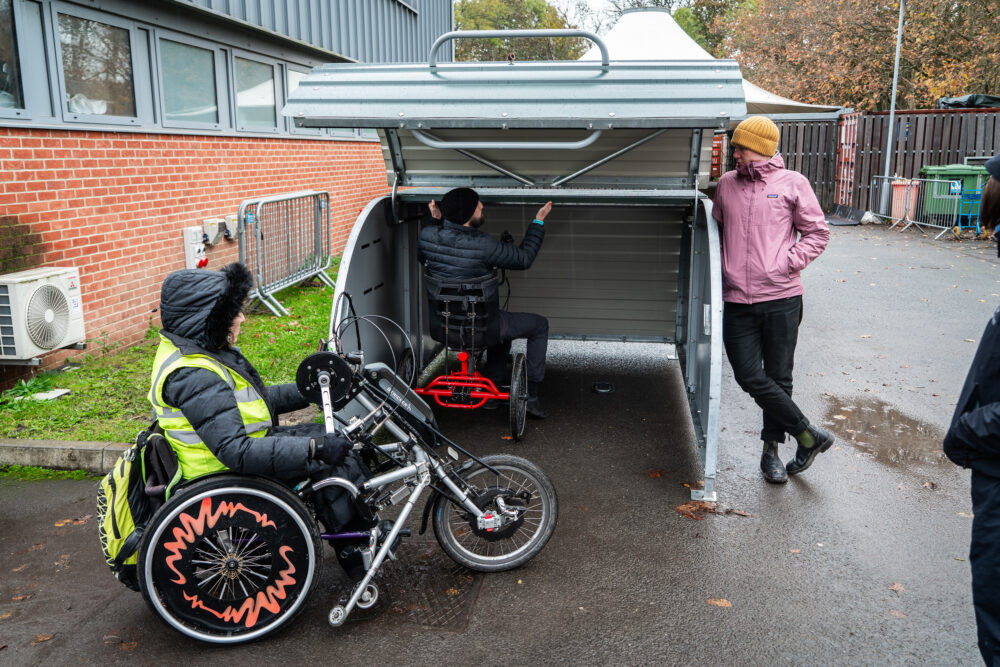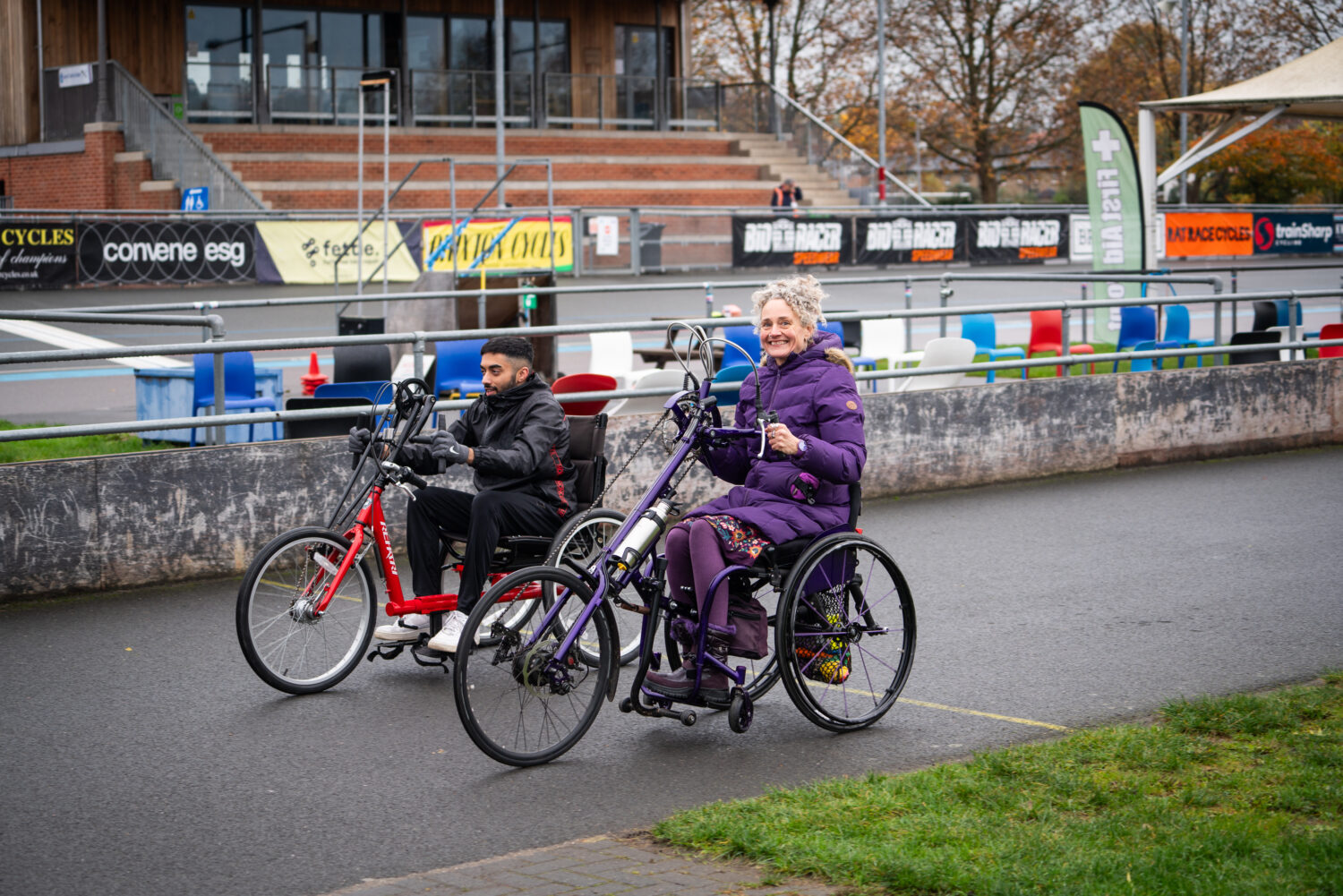High quality infrastructure is crucial to making cycling a safe and attractive mobility choice, this is especially true for Disabled cyclists, for whom accessible design can determine whether a journey is possible to cycle or not.
In November 2023, Cyclehoop attended a workshop at Herne Hill Velodrome hosted by Wheels for Wellbeing to gain a better understanding of the requirements of Disabled cyclists.
Wheels for Wellbeing are a Disabled people-led charity specialising in action, advocacy and support for Disabled cyclists. Established in 2007, they have helped thousands of disabled adults and children to experience the benefits of cycling through a range of programmes. These including drop-in sessions where participants can try a selection of cycle types from a fleet of non-standard cycles, campaigning for accessible infrastructure, publishing research papers and resources, and consultancy with built-environment stakeholders from government and the private sector.
Why accessible cycle parking is so important
As a cycle infrastructure manufacturer and installer, the session highlighted the value of accessibility in design and specification. A fifth of the UK population are Disabled people; approximately 16 million. According to a survey conducted by Wheels for Wellbeing, the majority of respondents cited cycling as the easier mobility choice compared with walking. Inclusive cycle parking and storage solutions have a huge impact, helping enable a large section of the population to experience the freedom and independence that cycling provides.
Moreover, under the Equality Act 2010, both the public and private sectors have a mandate to make adjustments and provisions within their facilities to ensure they are accessible. There are also clear financial benefits; as a large proportion of society, the Disabled population has significant spending power. Around £24billion is lost every year due to combined impact of inaccessibility across all sectors.

How can we create more accessible cycle infrastructure?
As part of the workshop, the Cyclehoop team were given the opportunity to try a wide selection of non-standard cycle types, including handcycles, tricycles, tandems and wheelchair access cargo cycles. We gained first-hand experience of the differing characteristics and considerations that must be taken into account when operating and storing non-standard cycles. These considerations include camber, incline, turning circle, and dimensions. While each use case scenario may have unique requirements, it is important to consider all these factors when designing products, adaptations and configurations.


Wheels for Wellbeing representatives Isabelle Clement and Kay Inckle helped us examine the useability of our Cargo Bikehangar from the perspective of a handcycle and wheelchair user. Several factors were revealed during the process, covering both the operation of the unit itself and the environment the unit is installed in. Kay and Isabelle shared their insights and suggestions with our design engineers to help inform future developments.
Wheels for Wellbeing have also published the 14 Features of Inclusive Cycle Parking, a valuable resource to all involved in cycling facility design.
With this experience, we are better equipped to create inclusive products and installations. A huge ‘Thank you!’ to Kay, Isabelle, Kate and the Wheels for Wellbeing team for hosting us; the workshop was extremely beneficial and enjoyable for us all.
Wheels for Wellbeing offer a range of training, consultancy and support services. Visit their website for more information: Wheels for Wellbeing



